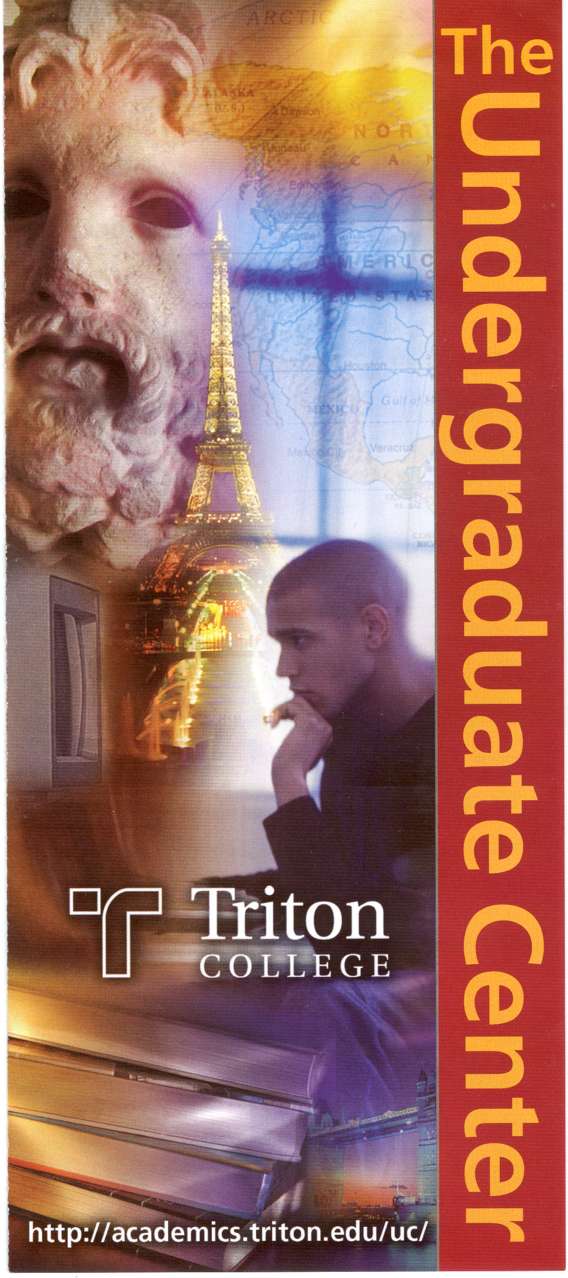 |
How to Register Students for the UNDERGRADUATE CENTER PROGRAM SPRING , 2010 |
For updates, go to http://academics.triton.edu/uc/advising.html
|
|
|
| 1. Complete Schedule for SPRING, 2010 (includes January Interim) . . . . . . . . . . | 1 |
| 1. A. Complete Schedule for SUMMER, 2010 (not yet available) . . . . . | |
| 2. Detailed Explanations of: . . . . . . . . . . . . . . . . . . . . . . . | |
|
Online Courses.
. . . . . . . . . . . . . . . . . . . . . . . . . . . . .
|
2.1 |
|
International Travel.
. .
. . . . . . . . . . . . . .
. . . . . . . . . .
|
2.2 |
| 3. The Mission of the Undergraduate Center . . . . . . . . . . | 3 |
|
|
4 |
| 1.
Complete
Schedule for SPRING, 2010
"At a Glance" HERE IS HOW THE
PROGRAM LOOKS IN ITS
ENTIRETY
|
|||
Lines
1
through 6: Interdisciplinary
Learning Community classes which "stand alone."
|
|||
| Course |
Capacity | "Concurrent" With |
Connected to |
| 1. HIS 192-370 UGC NET "Hist of Asia & Pacific--2": (Interim Class, Dec. 18 thru Jan. 19, 2010) | 25 |
||
| 2.
PHL 103-370 UGC "Ethics": (Interim Class, Dec. 18 thru Jan. 19, 2010) |
25 |
||
| 3. SOC 131-070 UGC "Social Problems" | 25 |
||
| 4. SOC 131-071 UGC "Social Problems" | 25 | ||
| 5.
RHT 101-074 UGC NET ,
"Writing 1" |
25 | ||
| 6.
PHL 103-097 "Ethics & Film-" |
25 | ||
